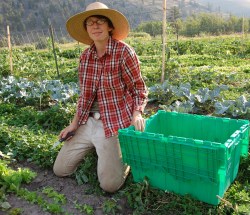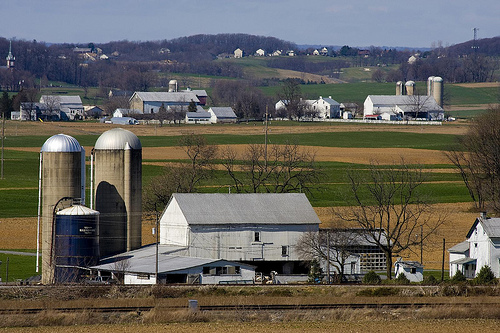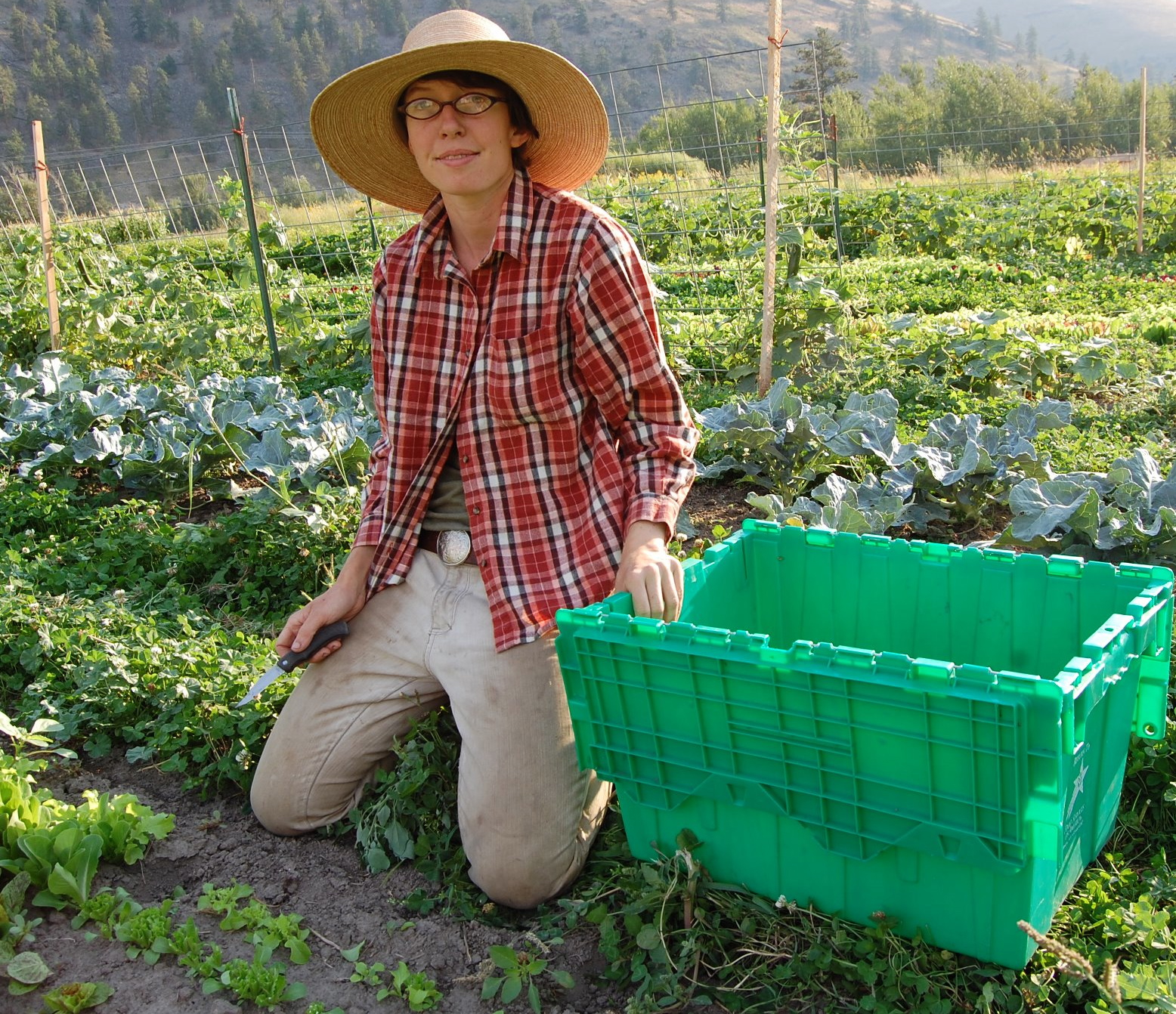
Photo by Tracy Potter-Fins, taken at County Rail Farm.
By the time the next Farm Bill expires in five years, 125,000 American farmers will have retired. This fact may well be the biggest threat to national food security, but you wouldn’t know it if you’ve been following this year’s Farm Bill hearings.
Instead, the conversation is about “managing risk” for the Big Five commodity crops (i.e. crop insurance, subsidies, and margins for large agricultural interests) and not about the challenges to our food system as a whole. The recent House Committee on Agriculture’s Farm Bill “Field Hearings” were dominated by established farmers, with little if any time for new farmers to talk about their needs. Here in New York’s Hudson Valley, a group of beginning farmers considered a trip to the Saranac Lake to participate in one of these hearings, but decided against it when we learned that there would be no time to add our experiences to the chosen panelists. Beginning farmers like us didn’t fare much better in similar Senate hearings.
That’s why it shouldn’t come as much of a surprise that the needs of the next generation have yet to be met in the current draft of the Farm Bill, recently approved by the Senate Committee on Agriculture.
The committee’s worst move was a 50 percent cut to the Beginning Farmer and Rancher Development Program. This grant program, originally authorized in the 2008 bill, funds all-important training programs for new farmers, from New Roots for Refugees in Kansas to the Maine Organic Farming and Gardening Association’s Journeyperson program. Reading the list of projects that this program supports, it’s hard to imagine half of them being eliminated.
The committee also failed to fund a matched savings account program that would help beginners raise enough capital to start a farm business. Matched savings accounts, or “Individual Development Accounts,” as they’re called in the Farm Bill, have huge potential to help new farmers, as demonstrated by programs run by Practical Farmers of Iowa and California Farmlink. The Individual Development Account program was authorized in the 2008 Farm Bill, but has yet to receive one penny through the appropriations process [PDF]. So, for now, it’s likely to remain nothing more than a good idea with no money attached.
Despite leaving new farmers out of the hearing process, the Senate Committee did take a few cues from the Beginning Farmer and Rancher Opportunity Act, a farm bill “marker” bill that outlines funding packages and rule changes that can help beginners.
For instance, the committee included changes to federal farm loan rules that would enable more apprentices and farmworkers to finance the purchase of farm land. If passed, the Farm Service Agency (FSA) would no longer require that farmers have operated their own farm for three years before qualifying for a loan. Rather, FSA would simply require that applicants have worked on a farm for three years. This particular rule has disqualified many otherwise well-qualified young farmers from using federal loan programs to buy farms. FSA would also be able to help more beginning farmers make down payments on farm property with updated loan limits.
Also from the Beginning Farmer and Rancher Opportunity Act, Vermont Sen. Patrick Leahy (D) led advocacy in support of the expansion of the purpose of the federal program that funds conservation easements to also promote “agricultural viability for future generations.” This seemingly small change could potentially have a big effect if the U.S. Department of Agriculture would fund and even prioritize conservation easements that include succession plans or provisions that would keep farmland affordable to farmers over the long term.
As the bill moves to the floor and eventually to the House, there is still time to fix the committee’s draft. One encouraging sign is that the Beginning Farmer and Rancher Opportunity Act just earned sponsorship from two Republicans in the House. Rep. Chris Gibson, from the Hudson Valley of New York, is the latest Republican to sign on. He joined Rep. Jeff Fortenberry of Nebraska, the bill’s original sponsor. If these two can convince their colleagues to follow their lead, it’s possible that the House could even improve on the Senate’s draft.
But really, if members of Congress want to do justice by the young people who are dedicating their lives to feeding the country, both houses should hold hearings especially for us. Beyond the valuable provisions of the Beginning Farmer and Rancher Opportunity Act, a comprehensive strategy is necessary to ensure the success of the next generation. And that strategy begins with elected officials that include new farmers in the national dialogue and make time to understand their needs.



